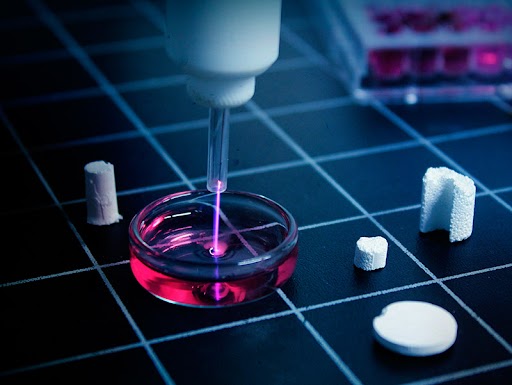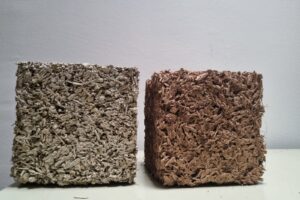
An innovative treatment for bone cancer based on plasma-gas treated hydrogels
April 14, 2023
RECYBUILDMAT: Construction materials based on recycling fibres from clothing waste and textile remnants
May 4, 202302/05/2023
The UPC Department of Computer Architecture coordinates the European project Vitamin-V, in which a complete set of hardware-software is developed for cloud services, based on the latest open-source technologies for RISC-V processors.
Given the growing demand in the market to provide cloud services with efficient, flexible, scalable and fast technologies, RISC-V has become an excellent option for the future to lead the next generation of processors and cloud services. It is an alternative platform to current processors and can be adapted to a wide range of applications in different execution environments, from internet of things (IoT) devices to large computing centres. RISC-V processors also enable personalisation and improvement in processor performance to adapt it to user needs. All of this makes this technology extremely attractive to companies, as it provides greater flexibility, efficiency and security for cloud services, without the need to purchase and maintain hardware and software.
In recent years, progress in the development of RISC-V technology has been supported by leading technology companies and by the scientific community, which is working to develop new software, tools and equipment. The European project Vitamin-V falls within this context. It is led by the Universitat Politècnica de Catalunya - BarcelonaTech (UPC), from the Department of Computer Architecture.
Vitamin-V is a project promoted by a consortium of eight European partners from the academic environment and the world of industry. It is focused on the development and validation of an online execution environment with a set of tools to implement the software and test its reliability, based on RISC-V technology for various cloud services. Vitamin-V will develop open-source software distributions for applications such as Apache Spark, Kubernetes, Tensorflow or RustVMM. It will provide a pioneering platform of hardware and software that will simplify and automate the development of these kinds of applications.
Consortium, budget and funding
The project has €4,635,818.75 of funding through the Horizon Europe programme, in the framework of the call ‘Digital and emerging technologies for competitiveness and fit for green deal’ and will last two years (January 2023 – December 2025). In addition to the UPC, members of the consortium include Barcelona Supercomputing Center - Centro Nacional de Supercomputación (BSC-CNS); the universities Politecnico di Torino (Italy) and the National and Kapodistrian University of Athens (Greece); the research centre Institute of Communication and Computer System (Greece); and the companies Semidynamics (Spain), Virtual Open Systems (France), Zeropoint (Sweden) and Exascale Performance System (Greece).

Technology
Topic
You want to know more?
Related Projects
- A research team from the inLab FIB at the Universitat Politècnica de Catalunya - BarcelonaTech (UPC), together with the Asociación de Personas con Movilidad Reducida (AsoPMR), has taken part in the Spot4Dis project to enhance the mobility and autonomy of people with reduced mobility.
- The La Volta project foresees the construction of a large Catalan vault pergola within the Llars Mundet campus, in the Montbau neighbourhood (Horta-Guinardó district). This structure will become a new architectural landmark for Barcelona, combining traditional construction techniques with contemporary innovation. The project involves the Rehabilitation and Architectural Restoration Research Group (REARQ), at the Universitat Politècnica de Catalunya - BarcelonaTech (UPC), and is led by the Architects’ Association of Catalonia (COAC) and the Barcelona Provincial Council.
SATE-VEG: A system for energy renovation of buildings that helps reduce the urban heat island effect
Researchers from the Architecture, Energy and Environment (AiEM) group at the Universitat Politècnica de Catalunya - BarcelonaTech (UPC) have developed SATE-VEG, an external thermal insulation system with a vegetal coating that offers seasonally adaptive thermal behaviour, enhances urban biodiversity and promotes positive health effects. The system is made from organic materials, requires low maintenance and consumes minimal water.- A research team from the Interdisciplinary Group on Building Science and Technology (GICITED) at the Universitat Politècnica de Catalunya – BarcelonaTech (UPC) is leading the BioSAFE project, which aims to develop sustainable building envelopes —mainly façades— designed according to sustainability, comfort and safety criteria, with particular attention to their acoustic behaviour and fire performance.




